
Ayooluwa Adewole

Ayooluwa is currently a Doctoral researcher at the Energy Institute in UCL, focusing on rural consumers of solar energy in Nigeria.
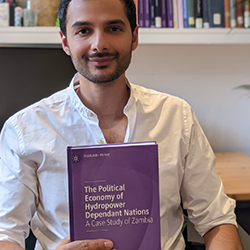
Dr Imad Ahmed
Imad wrote his PhD in Infrastructure Economics and Finance at UCL on the nexus between energy and climate change in an African context, which he published as a book with Springer Nature/Palgrave Macmillan. His case study focused on hydropower in Zambia. He is currently a Postdoctoral Research Fellowship at UCL BSSC/EFID in International Development focusing on resilient infrastructure in resource-constrained settings. One of his projects focuses on the adoption of TEG cookstoves in India. He is also an Energy and Climate Advisor at the Tony Blair Institute for Global Change and a member of the Academic Board of the Paddy Ashdown Forum.
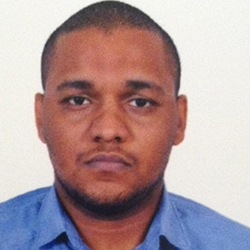
Muez Ali
Muez Ali is a Doctoral Researcher at the UCL Energy Institute and a part-time Research Associate at the Ministry of Finance and Economic Planning in Sudan. His research focuses on energy access, urbanisation and energy consumption, and governance and electrification in Sub-Saharan Africa. His research interests include the economic and political drivers of energy consumption and access in Sub-Saharan Africa and the political economy of fossil fuel subsidy reform and electricity sector reform in developing countries.
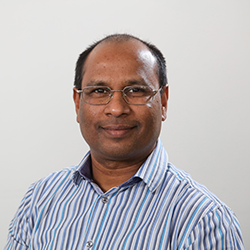
Dr Gabrial Anandarajah
Gabrial has over 20 years of research experience in energy systems modelling and policy analysis in the area of climate change uncertainly around energy-water-land nexus. He uses a mixed method combining social science research (qualitative analysis) with energy modelling and an inclusive approach involving relevant stakeholders is decision making to ensure the energy models developed are policy relevant and used for policy formulation, especially for developing countries. He worked with a range of energy system models such as TIMES, LEAP and OSEMOSYS for energy and climate policy analysis at national, regional and global level. His research focuses on both developed and developing countries. He has been investigator/Co-I for 19 research and consultancy projects worth over £5.5 Million covering both developed and developing countries including countries in Asia, Africa and Latin America. Gabrial published over 35 journal papers and presented in over 40 high profile international conferences/workshops, and published 6 book chapters and several research reports. He is the sole author of the UK Chapter of the World Small Hydropower Development Reports - 2016 and 2019 editions published by UNIDO. His recent research mainly focuses on building climate resilient energy system in the Global South to enhance energy access and to contribute to the 2030 agenda - Sustainable Development Goals.

Dr Iwona Bisaga
Iwona works in the fields of energy access and more broadly access to infrastructure with a particular focus on Sub-Saharan Africa and South-East Asia. Her doctoral research focused on off-grid solar energy access through Solar Home Systems (SHSs) in Rwanda and was completed in collaboration with BBOXX- a provider of SHSs operating in Africa and Asia, where she previously worked as a Research Manager. She is currently a Research Consultant at Chatham House where she covers humanitarian energy access and in parallel a Research Associate in the Engineering for International Development Centre at UCL with a focus on informal settlements upgrading and post-disaster recovery and resilience.

Dr Mairi Black
Mairi is a LCA and Sustainability practitioner, and has been working on bioenergy/biorefinery for over 20 years. She currently works at UCL, where she is a Senior Research Fellow, and at the University of Surrey.

Dr Aiduan Borrion
Aiduan is a Lecturer (Assistant Professor) in Sustainable Infrastructure and Co-director of the Engineering Exchange at UCL. She also serves as the European Editor of Environmental Engineering Science, the official journal of the Association of Environmental Engineering & Science Professors (AEESP), and is a member of the peer review panel for British Council Newton Fund and a Judge for Global CleanTech Challenge. She holds a PhD in Environmental Engineering and Clean Energy Technology from UCL.
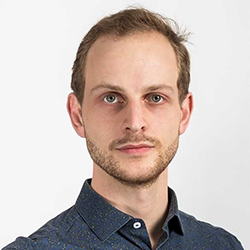
Oliver Broad
Oliver is a Research Associate at the UCL Institute for Sustainable Resources where he applies optimisation modelling frameworks to inform questions of policy and investment in energy systems. In a UK context, his work has focused on the decarbonisation of residential heat and on understanding the system value of bioenergy, including with carbon capture and storage (BECCS). Both topics are grounded in the need to understand the options for future national pathways under a Net Zero emission target to 2050. In parallel, Oliver is also involved in analysing sustainable future pathways for energy access in Ethiopia. Previous experience includes modelling and energy planning in developing Africa and Latin America on projects for the World Bank and the United Nations. Oliver has also organised and delivered capacity building workshops focused on energy modelling in UN DESA member countries. He holds a M.Eng. in Energy Engineering and Engineering Physics from the Ecole Centrale de Nantes, France, and the Royal Institute of Technology, Sweden.
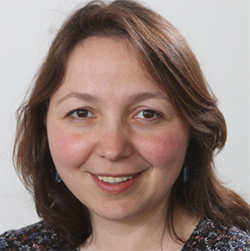
Dr Isabela Butnar
Isabela is a Senior Research Fellow in Bioenergy Systems at the UCL Institute for Sustainable Resources. She is an environmental scientist, chemical engineer by background. Her current research focuses on global bioenergy and Carbon Dioxide Removal options, investigating their potential contribution to climate change mitigation. She also has an extensive LCA expertise related to the environmental impact assessment of agricultural products (food and bioenergy) and waste management systems (consumer food waste and municipal solid waste). She is currently working on linking energy systems and LCA modelling in consequential LCA modelling frameworks applied for analysing circular economy and food waste management systems.
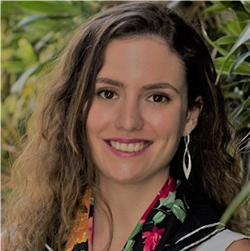
Lilia Caiado Couto
Lilia aiado Couto is a PhD Candidate at the UCL Institute for Sustainable Resources, a Contributing Author and a Chapter Scientist for the IPCC Sixth Assessment Report - Mitigation (AR6 WGIII). Lilia holds a BSc in Economics and a MSc in Energy Planning from the Federal University of Rio the Janeiro, Brazil. She has previously worked as a Researcher at the Institute of Applied Economic Research, as a consultant of the United Nations Environmental Program, and as an advisor for climate change, energy and sustainable finance of the World Business Council for Sustainable Development network in Brazil. Lilia has worked as freelance economist at Vivid Economics since 2017, performing analytical work in global projects about energy and GHG emissions regulations. Lilia’s research interests are the economics of the energy transition and climate policy.
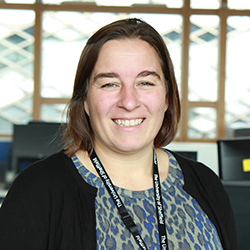
Professor Vanesa Castan-Broto
Vanesa is Professor of Climate Urbanism in the Urban Institute of the University of Sheffield. Her research focuses on the governance of global environmental change in the urbanization age. She is Principal Investigator of the European Research Council project "Low Carbon Action in Ordinary Cities" and of the project "Community Energy and Sustainable Transitions in East Africa" funded by the Global Challenges Research Fund. Her most recent books are Urban Energy Landscapes (2019, Cambridge University Press) and Urban Sustainability and Justice (2019, ZED Books).
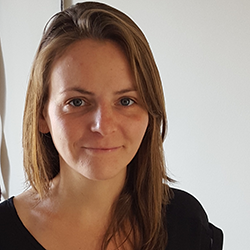
Jen Cronin
Jen is a doctoral researcher at the UCL Energy Institute, focussing on the production and use of bioenergy in the context of climate change and socio-economic development. Her research interests also include modelling long-term decarbonisation pathways, and combining social research with techno-economic modelling for analysis of land-use dynamics and energy access options.
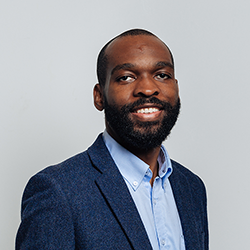
Dr Elusiyan Olufemi Eludoyin
Femi is a Research Fellow at the UCL Energy Institute. His work covers interdisciplinary research on energy transitions in countries across Sub-Saharan Africa and Southeast Asia.
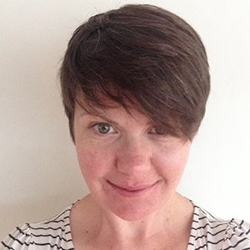
Dr Pamela Fennell
Pamela is a Lecturer in Urban Energy Modelling in the UCL Energy Institute's Building Stock Lab . Her research interests include large-scale building energy models and their application to cities in the global south and the quantification of uncertainty in such large-scale models.
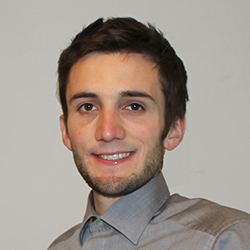
Leonhard Hofbauer
Leonhard is a doctoral researcher at the UCL Energy Institute focusing on energy system modelling and its role in governing the transition to a sustainable and equitable energy system. He is particularly interested in the transformation of energy systems in South Asia and has previously worked on decarbonization scenarios of the Indian power sector at the Indian Institute of Technology Kanpur as well as on future pathways of the Indian transport sector.

Carlos Huggins
Carlos is the Consultancy Manager for the Bartlett School for Energy, Environment and Resources (BSEER). Within the energy and development group his role is to support consultancy bids, manage the interface with UCL Consultants, and to support key client relationships.
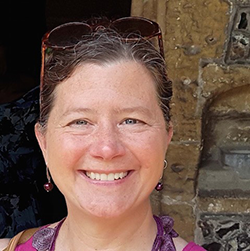
Dr Kathryn B Janda
Katy is an interdisciplinary problem-based scholar with 25 years of experience studying energy demand innovations, organizational change, and non-domestic buildings in developed and developing countries, including India, Mexico, and Brazil. She has advised government energy agencies in the US, UK and Europe and she has consulted for UNDP and the World Bank. Her research interests include: the worldwide status of building energy standards; behavioural insights in energy demand; the role of building professionals in driving 'middle-out' change; and implications of ownership structures in commercial real estate (including green leasing). She is a co-investigator on the iNUMBER project, a collaboration between India and the UK to help cities reduce their energy demand and improve their energy and water services.
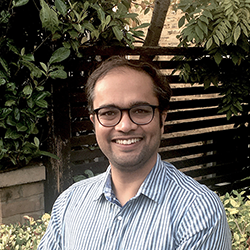
Dr Harshavardhan Jatkar
Harshavardhan is an architect, urban development planner, and development economist, currently working as a Research Fellow in Energy, Urban Planning and Informal Settlements at the Bartlett School of Environment, Energy and Resources, University College London. He has experience in undertaking research and development practice in India, Egypt, Perú and the European South. His work has focused on the topics of participatory development, informality, land politics, energy and social justice in postcolonial contexts. He is interested in developing postcolonial and decolonial approaches to urban development research and practice, to achieve greater social justice for all.
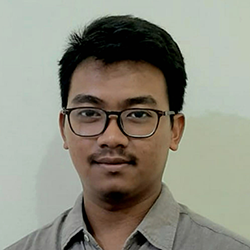
Rosyid Jazuli
Rosyid is a PhD student at STEaPP where his research focusses on the navigation of the political economy of fuel subsidy reforms in developing countries. He developed his interestin public policy and political-economic analysis as part of the Indonesian Vice President's team. He holds a master's degree in public policy from Victoria University of Wellington.
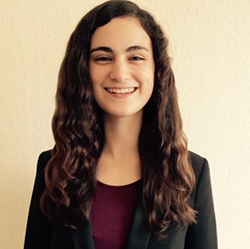
Vivien Kizilcec
Vivien is a doctoral researcher in the Civil, Environmental and Geomatic Engineering Department at UCL working in collaboration with BBOXX, a provider of solar home systems. Her work focuses on examining the peer effects and energy demand patterns of smart solar home systems in East Africa.
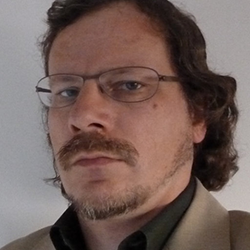
Dr Xavier Lemaire
Xavier is a sociologist and socio-economist, senior research associate at the UCL Institute for Sustainable Resources and the UCL Energy Institute. He has over 20 years’ experience as a practitioner and researcher in clean energy policies and regulation, energy access with decentralised renewable technologies and in the political ecology of large infrastructure projects
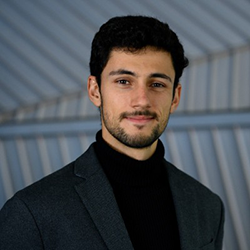
Vasco Mergulhão
Vasco is Doctoral Researcher at the Engineering for International Development Research Center, focusing on leveraging the emerging data resources to improve our understanding of Solar Home System (SHS) users. From a project in partnership with BBOXX - a SHS provider - his research aims to extract new insights from payment and energy usage data through modern data science and machine learning techniques

Dr Ben Milligan
Dr Milligan joined the Faculty in February 2012 and is currently a Senior Research Associate at the Centre for Law and Environment and the UCL Institute for Sustainable Resources. Ben's research, teaching and advisory work focuses on law and sustainable development, governance of natural assets, and governance of oceans and coasts.
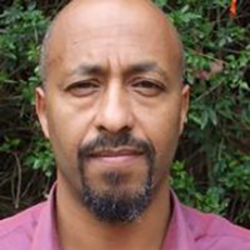
Professor Yacob Mulugetta
Yacob has 20 years of research and teaching experience specializing on the links between basic infrastructure provision and human welfare, with a particular focus on access to clean energy services to address poverty and inequality concerns. His current research is focused on three interconnected areas: energy systems and development; energy systems and climate change; and political economy of climate negotiations.
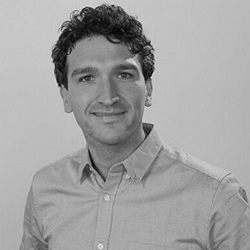
Professor Francesco Fuso Nerini
Francesco Fuso Nerini is Associate Professor at the KTH Royal Institute of Technology, and is the Director of the KTH Climate Action Centre. His focus is on addressing multi-disciplinary sustainable development related issues – including how future climate change and action, energy choices, and AI will affect the achievement of the sustainable development goals.Francesco has worked at several leading institutions on energy and climate issues, such as University College London, the International Energy Agency, the Payne Institute for Public Policy, and Melbourne University.
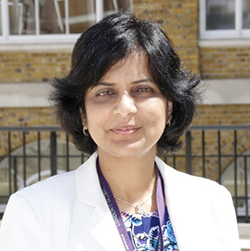
Dr Priti Parikh
Dr. Priti Parikh is Associate Professor in Engineering and International Development at UCL. She has over 15 years of engineering industry experience globally to include hands-on experience of designing infrastructure for slums in partnership with local communities.Dr. Parikh has successfully championed the need for high quality research and engineering education to meet global challenges and the SDGs in resource challenged settings. She founded the MSc programme in Engineering for International Development (EFID) and EFID student hub to harness engagement and interest from students. Dr. Parikh created and now leads the interdisciplinary EFID Research Centre which focusses on research in relation to water, sanitation and energy infrastructure in low-middle income countries. She was awarded the prestigious BBOXX/Royal Academy of Engineering Senior Research fellowship which focuses on energy access in sub-Sahara Africa through smart solar solutions. Dr. Parikh and her team of doctoral and post-doctoral researchers use mixed-methods for research focusing on the provision of sustainable and resilient infrastructure, environmental improvements and business models in resource constrained settings.

Tash Perros
Tash is a PhD researcher at UCL’s Engineering for International Development Centre. Her work takes a mixed methods approach to understanding the drivers of clean cooking adoption in Sub-Saharan Africa, and how it can be increased through policy and behaviour change interventions. She has an MEng in Mechanical Engineering and experience working in a range of sectors, including rural energy access, manufacturing and tech.
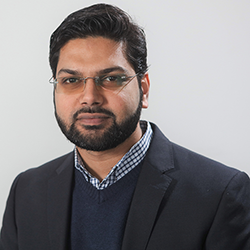
Dr Nishatabbas Rehmatulla
Dr Nishatabbas Rehmatulla is a Principal Research Fellow at the University College London (UCL) Energy Institute, where he has established and leads the social sciences research component of the world-leading multi-disciplinary shipping research group focused on the decarbonisation of shipping. His research focusses on the understanding of barriers to decarbonisation in the shipping sector and exploring solutions, both public and private, to accelerate just transitions to a low carbon industry. He co-leads the group in terms of its research direction and strategically, overseeing a portfolio of grant funded research and consultancy projects.
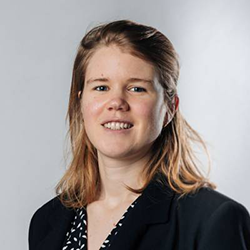
Alexandra Schneiders
Alexandra Schneiders is a Research Associate at the UCL Energy Institute and the Operating Agent of the Global Observatory on Peer-to-Peer, Community Self-Consumption and Transactive Energy Models (GO-P2P), an Annex of the User-Centred Technology Collaboration Programme by the International Energy Agency. Her research focuses on the policy and regulatory enablers/obstacles of rolling out peer-to-peer and community self-consumption models, at UK and international level. She is involved in projects enabling the rollout of these models in developing countries, including Colombia (Transactive Energy Colombia project in Medellin). Prior to joining the UCL Energy Institute in January 2018, she worked in Brussels in political and legal consultancies, advising corporate and public sector clients (such as the European Commission) on energy and financial services-related topics. Her background is in law and politics, and she holds degrees from the University of Amsterdam as well as the College of Europe.
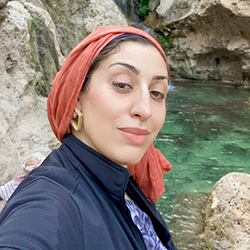
Dr Ala'a Shehabi
Dr Ala’a Shehabi is a lecturer in the Economics of the Built Environment at The Bartlett School of Sustainable Construction. Previously, she was the deputy director of the Institute for Global Prosperity. She is an interdisciplinary and mixed methods researcher focusing on public goods; infrastructure; energy justice in energy transitions; participatory action methods and citizen-scholarship through citizen science and citizen assemblies. Through her experience in large scale research projects, she is interested in decolonising knowledge production and democratising the university and sits on the planning committee of the SSRC’s Transregional Colaboratory on the Indian Ocean, aimed at achieving equitable funding models. She has also held fellowships at Stanford University, Lund University and the ILO and has lead research projects funded by BBSRC, ESRC, Hivos International and Access Now. Currently, she is Module Lead for s module on Infrastructure and Economic Development and she co-chairs the Bartlett BAME student staff form. Ala’a has also written extensively about democracy and human rights in her native Bahrain since the so-called Arab Spring protests of 2011 and her lived experience of digital surveillance, imprisonment, military tribunals, and exile.

Dr Catalina Spataru
Catalina Spataru is a Professor in Global Energy and Resources and Director of the UCL Energy Institute. She specialises in whole energy systems modelling and resource nexus (focusing primary on water, energy, land, materials), low carbon energy transition, with great interest in SDGs, resource governance, circular economy; case studies (West Africa, South America, Asia) and islands worldwide. Prof Spataru is also the founder of the Islands Laboratory at UCL, one of the leading research lab on global islands research gathering cutting edge initiative knowledge and insights for use of resources, planning, business models and policy for sustainable solutions. One of the current projects focuses on governance of disasters risk reduction and resilience funded via Belmont Forum.

Meron Tesfamichael
Meron is a Research Fellow at STEaPP. Her research focuses on the effect of political economy factors on energy-related policies and actions. She is interested in the political and social life of energy, particularly in how technical, political, social, and behavioural components interact to structure actors energy choices and practices. Currently, her work focuses on the adaptation of energy efficient practices among small and medium (but energy intensive) industries in sub-Saharan Africa.
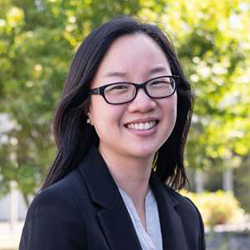
Dr Long Seng To
Long Seng is an Engineering for Development Research Fellow funded by the Royal Academy of Engineering at Loughborough University. She is also an Honorary Lecturer in the Department of Science, Technology Engineering and Public Policy at UCL (UCL STEaPP). Her research tackles the challenge of providing access to affordable, reliable, sustainable and modern energy for all (as articulated in the UN Sustainable Development Goals) in the context of increasing stresses and shocks, such as climate change, disasters and conflicts. Her research focuses on enhancing community energy resilience using renewable energy in South Asia and sub-Saharan Africa. You can read more about Dr Long Seng To's work at her personal website.
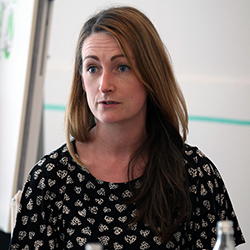
Dr Julia Tomei
Julia is a social scientist whose research focuses on the livelihood, social and political dimensions of energy in the Global South. Facilitating access to modern energy services has become a key arena for international governance. She is interested in how these policy initiatives translate into local level outcomes, particularly in light of the vast resources that are being spent on interventions to widen access to modern energy services.
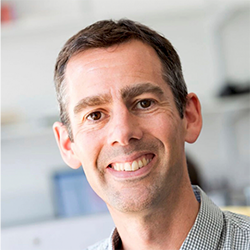
Professor Jim Watson
Jim is Professor of Energy Policy at UCL’s Institute for Sustainable Resources, and Director of the UK Energy Research Centre. He has over twenty years of research experience on climate change, energy and innovation policy. He frequently advises UK government departments and has been a Specialist Adviser with three UK Parliamentary committees. His international experience includes over ten years working on energy scenarios and energy innovation policies in China and India. He has advised the UN Commission on Science and Technology for Development on renewable energy; led a systematic review on energy access for the UK Department for International Development (DFID); and was the international panel member for an Academy of Sciences of South Africa consensus study on green technologies. He is an adviser to two major FCDO energy research programmes: Energy and Economic Growth and Transforming Energy Access.
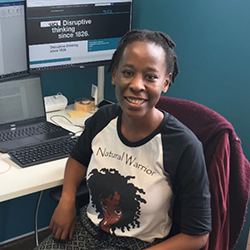
Penlope Yaguma
Penlope is a PhD student in the Department of Science, Technology, Engineering and Public Policy (UCL STEaPP). Her research area is energy for slums and urban informal settlements, with a focus on electricity access for slums in Ugandan cities and the policy frameworks around which affordable and safe access to electricity can be realised. Her research is anchored in energy justice frameworks, which she intends to couple with socio-technical methods to better understand the electricity access challenges and devise appropriate solutions for a specific case study slum community in Kampala, Uganda. She is supervised by Prof. Yacob Mulugetta (primary) and Dr. Priti Parikh (secondary).
 Close
Close

